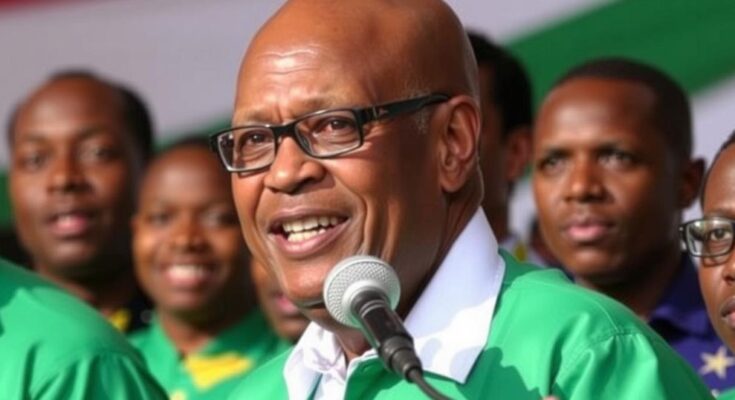Chad’s ruling Patriotic Salvation Movement, led by President Mahamat Idriss Deby, won 124 out of 188 National Assembly seats in a parliamentary election marred by opposition boycotts. Critics have called the election a violation of democratic norms, whereas the government claims it is a step toward democratic transition, amid a backdrop of changing international alliances and rising tensions with former colonial powers.
The recent parliamentary election in Chad revealed that the ruling Patriotic Salvation Movement (MPS), led by President Mahamat Idriss Deby, has secured a significant majority. According to the National Elections Management Agency (ANGE), the MPS won 124 out of 188 seats in the National Assembly, with a voter turnout of approximately 51.56%. However, the election faced criticism due to the boycott by opposition parties, who claimed the process was lacking in transparency and fairness. Despite these claims, the government has asserted that this election marks a critical step towards a democratic transition in Chad.
Following the election, it was reported that 38 political groups will be represented in the new assembly. However, the specific allocation of seats among the non-MPS representatives remains unclear. Opposition parties, particularly the Transformateurs led by Succes Masra, have expressed their dissent over the election, stating their withdrawal was due to concerns regarding the electoral process’s integrity. In response, the government denied any allegations of electoral misconduct.
President Deby assumed power in 2021 after the death of his father, who had governed for three decades. Deby has since concluded a defense agreement with France and considered withdrawing from a regional security initiative. This shift in military relationships mirrors trends seen in other West African nations, such as Mali and Niger, which have sought to distance themselves from French influence.
Chad’s political climate has been notably tumultuous, especially since the assassination of former President Idriss Deby Itno during an insurgent attack in 2021. Following his death, his son, Mahamat Idriss Deby, was appointed as the interim leader and later elected as president in May 2023. This election, however, has been marred by accusations of non-transparency and manipulation, particularly following the boycott by key opposition parties, raising questions about the legitimacy of the electoral process itself. The country’s recent shift away from traditional defense partnerships, such as that with France, indicates a potential realignment in its foreign relations, increasingly leaning towards nations like Russia.
In summary, the ruling Patriotic Salvation Movement’s majority in Chad’s recent parliamentary election underscores the growing political dominance of President Mahamat Idriss Deby in the wake of alleged electoral irregularities and opposition boycotts. The ongoing criticism from opposition leaders regarding the election’s integrity raises significant concerns about the future of democracy in Chad. Additionally, the government’s strategic departure from colonial defense ties reveals a crucial pivot in its international relations, signaling broader shifts within the region.
Original Source: www.dw.com




